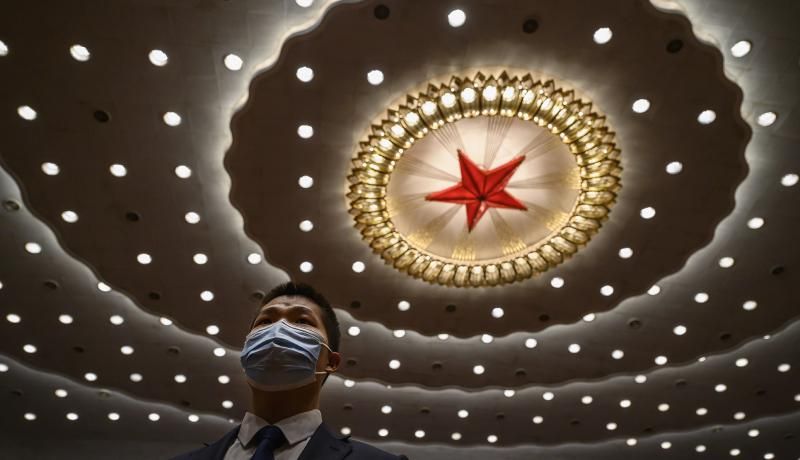
Beijing holds its conservative maxim that, no matter how complicated the international situation has become, China must prioritise the management of its own affairs. Despite the current global crisis, that message still resonated loud and clear from the long-delayed National People Congress (NPC).
The new national security law in Hong Kong caused a blast of explosive responses internationally. But China’s critical domestic priority remains to revive a shuttered economy amid mounting unemployment. Soft power ‘pandemic’ diplomacy and the ambitious Belt and Road Initiative (BRI) were scarcely mentioned during the NPC.
Instead, Chinese leadership presented a grim assessment of the domestic and international economic landscape, as foreshadowed in previous politburo meetings. It also abandoned the annual GDP target, something which has not occurred since 1985 when it first announced the number.
This is because a GDP target alone is no longer seen as a panacea to surmount all challenges faced by China in a post-coronavirus world. Instead, stabilizing soaring unemployment to create an extra nine million jobs, eradicating absolute poverty, and increasing cash flow to smaller companies trump everything else.
Collapse of global demand
Without proper jobs, ordinary Chinese could potentially turn into a hugely disruptive force to challenge societal stability, as has happened in other parts of the world. Facing a collapse of global demand and a transitioning economy less dependent on exports, can the party guarantee everyone a salary?
Beijing has begun to encourage export-led manufacturers to focus on selling to a domestic market. But this transition will take time. The party has always been a master of story-telling to its own population, and often presents its story with a sprinkle of populism.
The populism in President Xi's plan is driven by his vow to eradicate absolute poverty by the end of 2020. In such a precarious time, it is essential for President Xi and his team to prevent any perception of failure in managing the economy from becoming widespread among the anxious Chinese population.
Such policy is backed by a consensus within the party and is designed to give the impression that his key policy agenda is swiftly moving forward triumphantly. But Beijing recognizes the acute anxieties from the grassroots of society as the country appears to have gone from being one of the world’s most equal societies to one of the world’s most unequal. This will be worsened by the pandemic.
During the Two Sessions meetings, Beijing proposed new public-private partnerships, deregulation of certain sectors, and increased borrowing to smaller enterprises. Such steps represent a welcome improvement but are unlikely to raise sufficient revenue nor appeal strongly enough to President Trump to decisively alter the course of the Sino-US confrontation.
Relations between Beijing and Washington are, meanwhile, going from bad to worse and, behind an exuberant chorus of pandemic diplomacy performed by senior Chinese diplomats, there has been a sombre tone on international challenges posed by the pandemic inside the power corridors of Beijing.
The gigantic BRI was rarely referred to in the policy announcements, nor was fresh state capital for the BRI raised. It signals a scale back to serve China's age-old foreign affairs priority – creating a stable external environment for domestic economic developments and a return to a self-serving periphery diplomacy with a focus on its immediate neighbours.
The BRI cannot encompass everything. Beijing needs to choose its priorities, narrow down its objectives and focus on delivering existing projects. Beijing must also improve the quality of BRI projects by working with other stakeholders.
Since joining the WTO, China has created jobs and wealth, while the rest of the world has enjoyed a wider choice of products and services at lower prices. But all good things must come to an end. China is no longer seen as a benign force nor does it wish to bail out the world through a massive stimulus.
Challenges to China’s economic model are increasing, as witnessed by the ongoing tussle between the world two largest economies. But this is also a pointer - for the nation and the world - to the direction of a self-reliant China in post-coronavirus world.
As the centenary of the party approaches, the world’s largest political party must tell a convincing story that its policies work for everyone inside China. And that story is not about a victorious conclusion in fighting COVID-19, but rather a continuation of the party legitimizing its rule by providing jobs and social stability. This is much easier said than done.
Dr Yu Jie, Senior Research Fellow on China, Asia-Pacific Programme.
This is a version of an article which appeared in the South China Morning Post.
